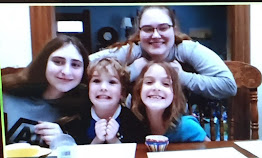Sermon Luke
2:36-39 December 27, 2020 Christmas 1
The Return Home
It’s hard to imagine a life as a widow for more of your life
than the years being married. But, it happens. It happens more than we realize.
Anna is a blessing story for us. Her short entrance into the story at the birth
of Jesus causes us to pay attention.
A woman whose life did not go as she planned ends up living her life at the Temple serving God day and night. I’m assuming that the Temple offered her a home. The requirement under the Law is that all widows and orphans are to be taken care of as part of the ministry and commitment to God. Usually it is the family responsible and then if there is no family to speak of it becomes the responsibility of the faith community. This is why we can assume that Anna had no family. We can also assume that she was respected and well liked because she was known in the Temple. The words spoken about her are quite positive.
What details of your story around this Christmas with Jesus are important for you to document for future readers to understand how this Christmas was different? How has this year with Jesus at the manger made an impact on you and your family? It is often in the tiny details that the Spirit makes us aware of what we need in our life to change our life and be on the road of continued growth in Christ our Lord.
In this last verse of chapter two (39) we learn that Mary,
Joseph and Jesus headed home to Galilee where he would grow up from a baby into
a young boy and into a man.
Everyone headed home.
The shepherds, the wisemen, all those who had gone to the
different cities for the census, they all returned to their homes. They
returned to the ordinary of their lives.
Perhaps, we need that reminder. Return home. You see we have a need for stability. We have a need for normalcy. We have a need to know that everything will turn out right. While the fanfare of the celebrations are great. And this year even that has been challenging. We still did our best to make a big deal about Christmas. I’m not sure if you have already put away all of your decorations, gifts, put the trash out on the road, or if your still gazing in wonder at your beautiful tree and the glowing fireplace, and the adorable Santas and nativities? Either way, the question is, what next?
Simeon in his, what next plans, let us know his
plans. He could now go and rest his weary body and transition from this life to
the next. He could do this in peace because his dreams and promises had been
fulfilled. Anna, in her what next plans, could transition from preaching about
the Savior who was to come, she could praise the Savior who has come.
Christmas and Easter are life altering moments for
people of faith.
We approach these church events
every year already knowing what to expect.
Yet, every year we also anticipate
the surprise of the experience of Christmas and Easter as if for the first
time.
We reach into the
recesses of our memories and
search for that moment in our
life when
the love of Christ appeared to
us and made sense.
We reach back and we try
to remember
our first church experiences
when we paid attention.
When we listened to the
readings and
we remembered them so well we
could recite them with the reader.
Treasured moments.
We are moved emotionally, spiritually, in a way forward in our
faith and in our growth of love. And each year we move in the direction that
draws us closer to God and family. And when the moment is over, we return
home.
Returning home is where the new experiences occur.
By returning home we
allow the sacred moments to
enter into the ordinary of our life.
As we all return home at the end of this season we have
the opportunity to document the things that mattered.
We document them for how we responded to an important event
in the time of our cycle of life.
I think its pretty amazing how we celebrate the Christmas
story of the birth of Jesus.
Each year we are a year older, yet the story itself is
2000 years old.
The story doesn’t change but we change and grow with
it.
So, today, before the flashes of those special moments of
this year are gone, write them down.
Write down the words that were exchanged.
Write down how you communicated through the
computer.
Write down how you sat around a firepit to sing of
the Savior instead of in a heated sanctuary.
These little memories may serve well in the future in
ways we least expect.
We do not hear about Jesus again in scripture until he is twelve
years old. And then it is just a glimpse. The next time we hear about him is as
he enters the ministry God has sent him for. The people who witnessed the
blessing of our Savior at his birth, were able to return to their ordinary
lives filled with hope.
They were renewed in faith, love, and certainty that God loved
them. It’s there for us too, to carry the certainty of our faith into the
days ahead. God’s love for us is from everlasting to everlasting. Amen.




























